For some people, breakfast is the most important meal of the day, a healthy breakfast will include fiber, protein and healthy fats that provide enough energy.
1. Cereals should not be eaten for breakfast
A lot of people think that breakfast cereal is a nutritious option for children and adults. Because cereal packages are often presented to consumers with messages such as cereals are a good source of nutrition. In fact, these grains are processed and contain only small amounts of whole grains. In addition, nutrients are artificially added in a process called admixture. One study found that children who ate cereal for breakfast and children who didn’t eat cereal for breakfast had similar immune functionBreakfast cereals contain mostly refined grains (not must be pure) and sugar. In fact, sugar is often first or second on a cereal’s ingredient list. The things that are at the top, the more weight in the composition.
Even “healthy” grain options, such as granola containing oats, are often loaded with added sugar. High sugar can increase your risk of obesity, type 2 diabetes, heart disease and other chronic health conditions.
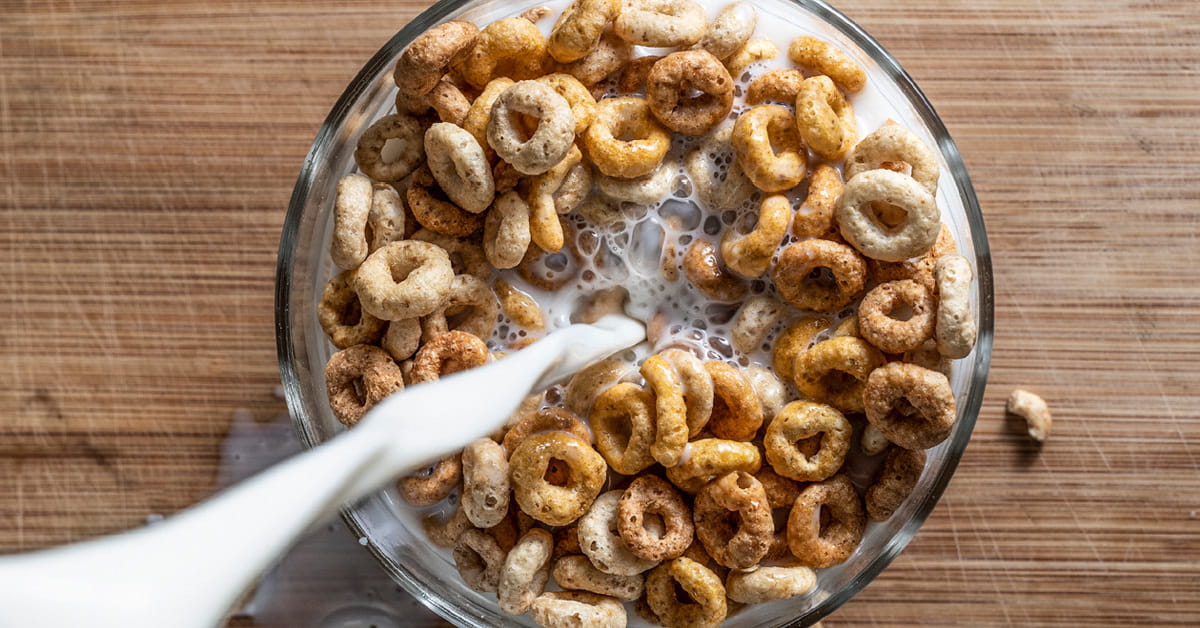
2. Pancakes and waffles
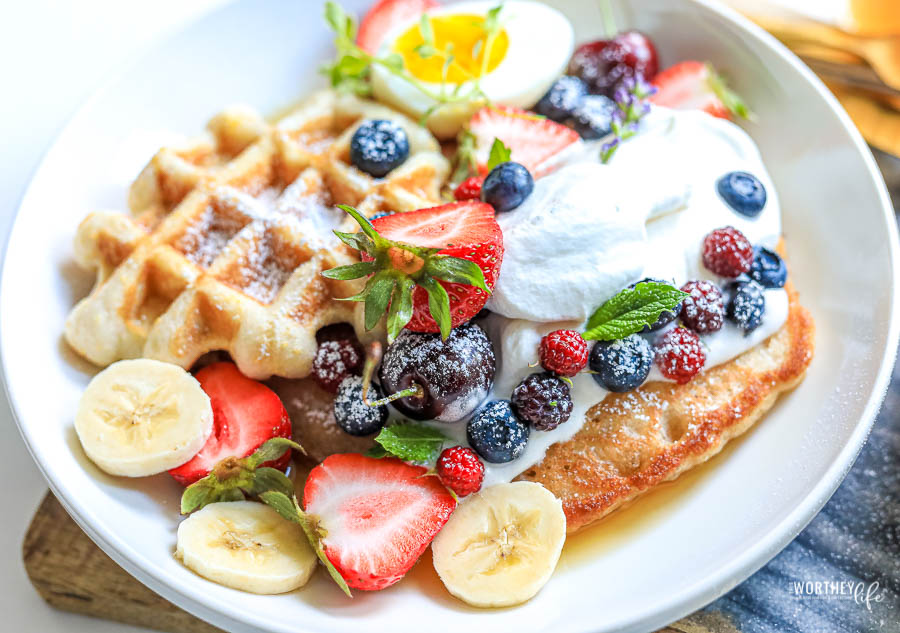
Pancakes and waffles are often a popular choice for weekend breakfasts at home or at restaurants. Both pancakes and waffles contain flour, eggs, sugar, and milk. They are cooked slightly differently, to achieve a distinct shape and texture. Although they have more protein than some other breakfast foods, both of these cakes contain high amounts of refined flour. Many researchers believe that refined grains like flour contribute to insulin resistance. Also, pancakes and waffles are often topped with syrup. Pancakes contain high-fructose corn syrup. High levels of fructose can cause inflammation that leads to insulin resistance, which can lead to prediabetes or type 2 diabetes.
3. Toast with Margarine
 Toast with a high amount of margarine seems like a good breakfast choice, as it contains no saturated fat or sugar. However, this is actually an unhealthy breakfast for two reasons.First, because the flour in most bread is refined, it provides few nutrients and less fiber. Because it is high in refined carbs and low in fiber, it can raise blood sugar very quickly. Elevated blood sugar leads to rebound hunger causing us to eat more at our next meal, which can lead to weight gain.Second, most margarines contain trans fats, which are unhealthy fats. Food manufacturers create trans fats by adding hydrogen to vegetable oils to make them look like saturated fats, which are solids at room temperature. While studies don’t show saturated fats are harmful, trans fats are certainly harmful. There is ample evidence that trans fats are highly inflammatory and increase the risk of disease. Also, keep in mind that margarine can be labeled “trans fat-free” but still contain trans fat, as long as it’s less than 0.5 grams per serving.
Toast with a high amount of margarine seems like a good breakfast choice, as it contains no saturated fat or sugar. However, this is actually an unhealthy breakfast for two reasons.First, because the flour in most bread is refined, it provides few nutrients and less fiber. Because it is high in refined carbs and low in fiber, it can raise blood sugar very quickly. Elevated blood sugar leads to rebound hunger causing us to eat more at our next meal, which can lead to weight gain.Second, most margarines contain trans fats, which are unhealthy fats. Food manufacturers create trans fats by adding hydrogen to vegetable oils to make them look like saturated fats, which are solids at room temperature. While studies don’t show saturated fats are harmful, trans fats are certainly harmful. There is ample evidence that trans fats are highly inflammatory and increase the risk of disease. Also, keep in mind that margarine can be labeled “trans fat-free” but still contain trans fat, as long as it’s less than 0.5 grams per serving.
4. Muffins . Muffins
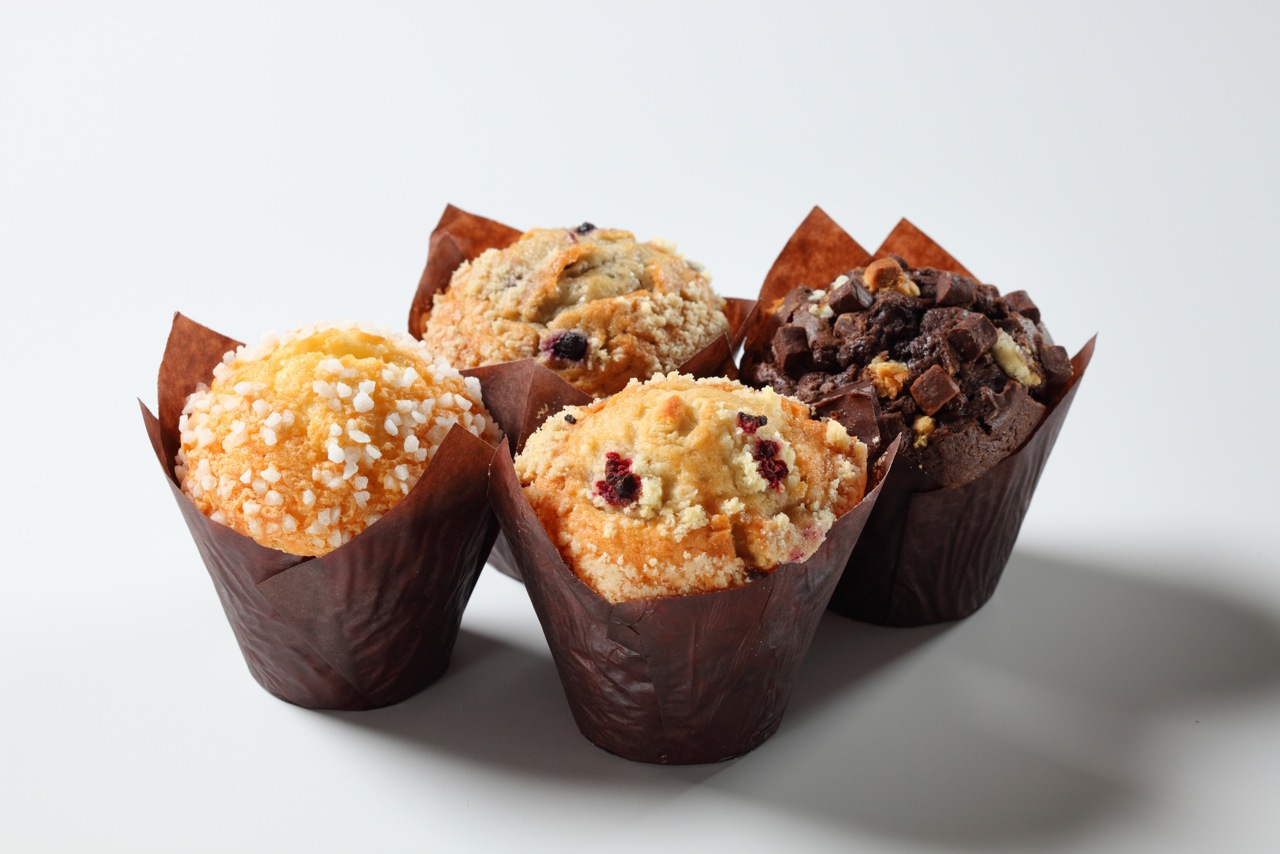 Despite their reputation for being healthy, most muffins are just little cakes in disguise. They are made from refined flour, vegetable oil, eggs and sugar. The only healthy ingredient is eggs. Sometimes muffins are coated with added sugar, or filled with chocolate or dried fruit, adding to their sugar and calorie content.
Despite their reputation for being healthy, most muffins are just little cakes in disguise. They are made from refined flour, vegetable oil, eggs and sugar. The only healthy ingredient is eggs. Sometimes muffins are coated with added sugar, or filled with chocolate or dried fruit, adding to their sugar and calorie content.
5. Fruit juice
 Some fruit juices on the market actually contain very little juice and are sweetened with sugar or high-sugar corn syrup. High sugar levels increase the risk of obesity, metabolic syndrome, type 2 diabetes and other diseases. Even 100% fruit juice contains a lot of sugar. Drinking large amounts of fruit juice can have the same effect on your weight gain and health as drinking sugary drinks. Drinking fruit juice causes blood sugar to rise very quickly because there is no fat or fiber that slows down absorption. The spike in insulin and the drop in blood sugar can make you feel tired, shaky, and hungry.
Some fruit juices on the market actually contain very little juice and are sweetened with sugar or high-sugar corn syrup. High sugar levels increase the risk of obesity, metabolic syndrome, type 2 diabetes and other diseases. Even 100% fruit juice contains a lot of sugar. Drinking large amounts of fruit juice can have the same effect on your weight gain and health as drinking sugary drinks. Drinking fruit juice causes blood sugar to rise very quickly because there is no fat or fiber that slows down absorption. The spike in insulin and the drop in blood sugar can make you feel tired, shaky, and hungry.
6. Toast
 Toast is a quick and easy breakfast option. However, their ingredients contain unhealthy things. For example, Pop Tarts contain white flour, brown sugar, high-sugar corn syrup, and soybean oil. In addition to being high in sugar and refined flour, toast has only a few grams of protein. One study found that women who ate a breakfast with 3 grams of protein and 44 grams of carbs tended to be hungrier and ate more at lunch than women who ate a high-protein, low-carb breakfast.
Toast is a quick and easy breakfast option. However, their ingredients contain unhealthy things. For example, Pop Tarts contain white flour, brown sugar, high-sugar corn syrup, and soybean oil. In addition to being high in sugar and refined flour, toast has only a few grams of protein. One study found that women who ate a breakfast with 3 grams of protein and 44 grams of carbs tended to be hungrier and ate more at lunch than women who ate a high-protein, low-carb breakfast.
7. Cake with jam and cream
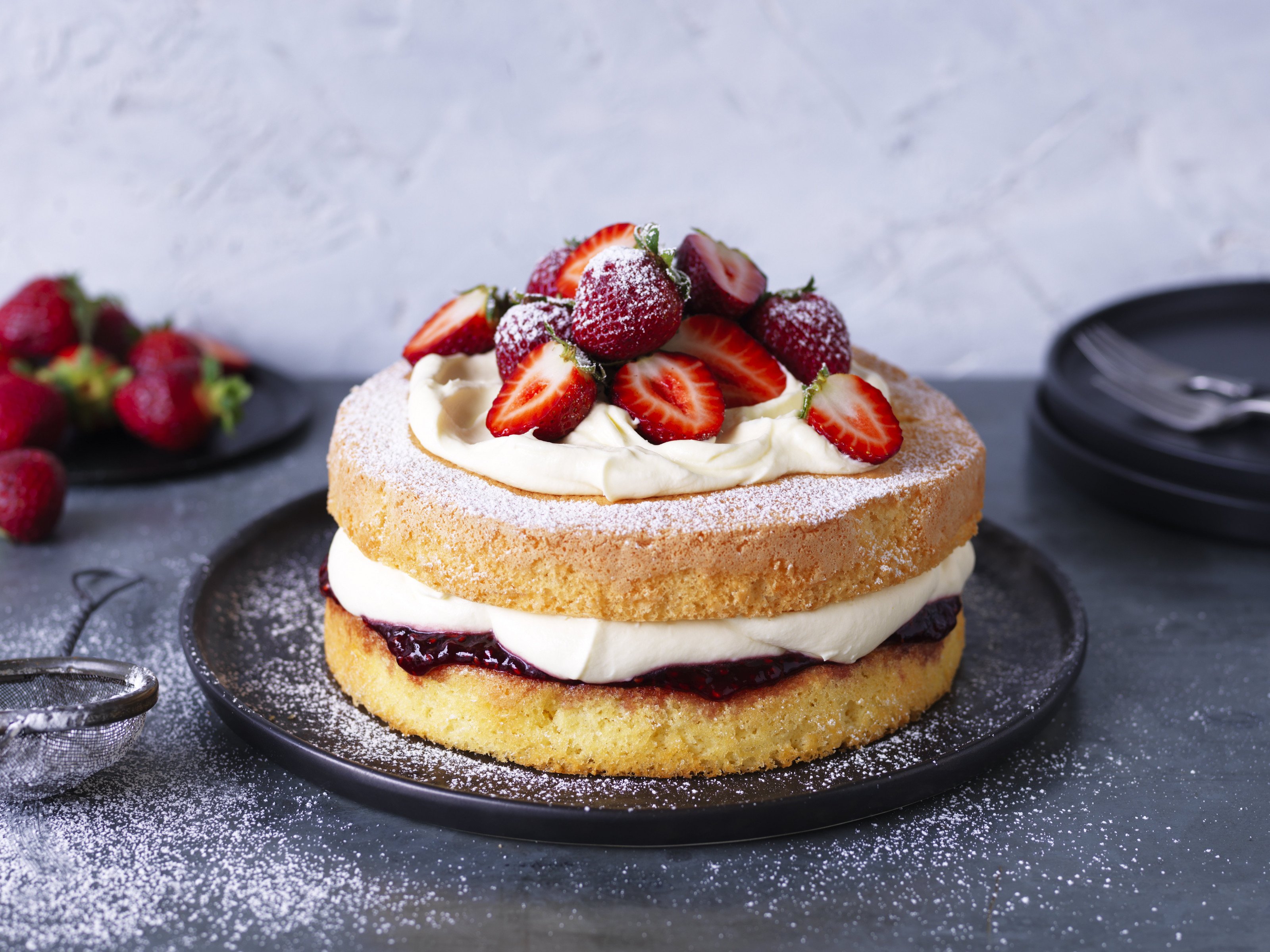 The scones topped with jam are really more of a dessert than a meal. The scones are made by mixing refined flour, butter, and sugar with the desired flavor. The dough is then shaped into small balls and baked. They are usually topped with cream and jam or jellies. The end result is a breakfast that is high in calories, sugary, and low in fiber and protein.Studies have shown that fiber has many benefits, including better blood sugar control, longer satiety and less cravings. On the other hand, eat a breakfast high in refined carbs. can spike your blood sugar and make you hungry. In one study, obese children were more likely to feel hungry after eating a high-carb meal than after eating a high-protein, low-carb meal. These babies’ hunger and satiety hormones also change.
The scones topped with jam are really more of a dessert than a meal. The scones are made by mixing refined flour, butter, and sugar with the desired flavor. The dough is then shaped into small balls and baked. They are usually topped with cream and jam or jellies. The end result is a breakfast that is high in calories, sugary, and low in fiber and protein.Studies have shown that fiber has many benefits, including better blood sugar control, longer satiety and less cravings. On the other hand, eat a breakfast high in refined carbs. can spike your blood sugar and make you hungry. In one study, obese children were more likely to feel hungry after eating a high-carb meal than after eating a high-protein, low-carb meal. These babies’ hunger and satiety hormones also change.
8. Fat-free yogurt
A bowl of plain Greek yogurt topped with berries is a great example of a healthy breakfast. However, a box of unsweetened, fat-free fruit yogurt is not. In fact, many flavored fat-free yogurts contain more sugar than an equivalent serving of ice cream. Fat helps keep you full because it takes longer to digest than carbs, and it also triggers the release of the hormone full cholecystokinin (CCK).
9. Granola
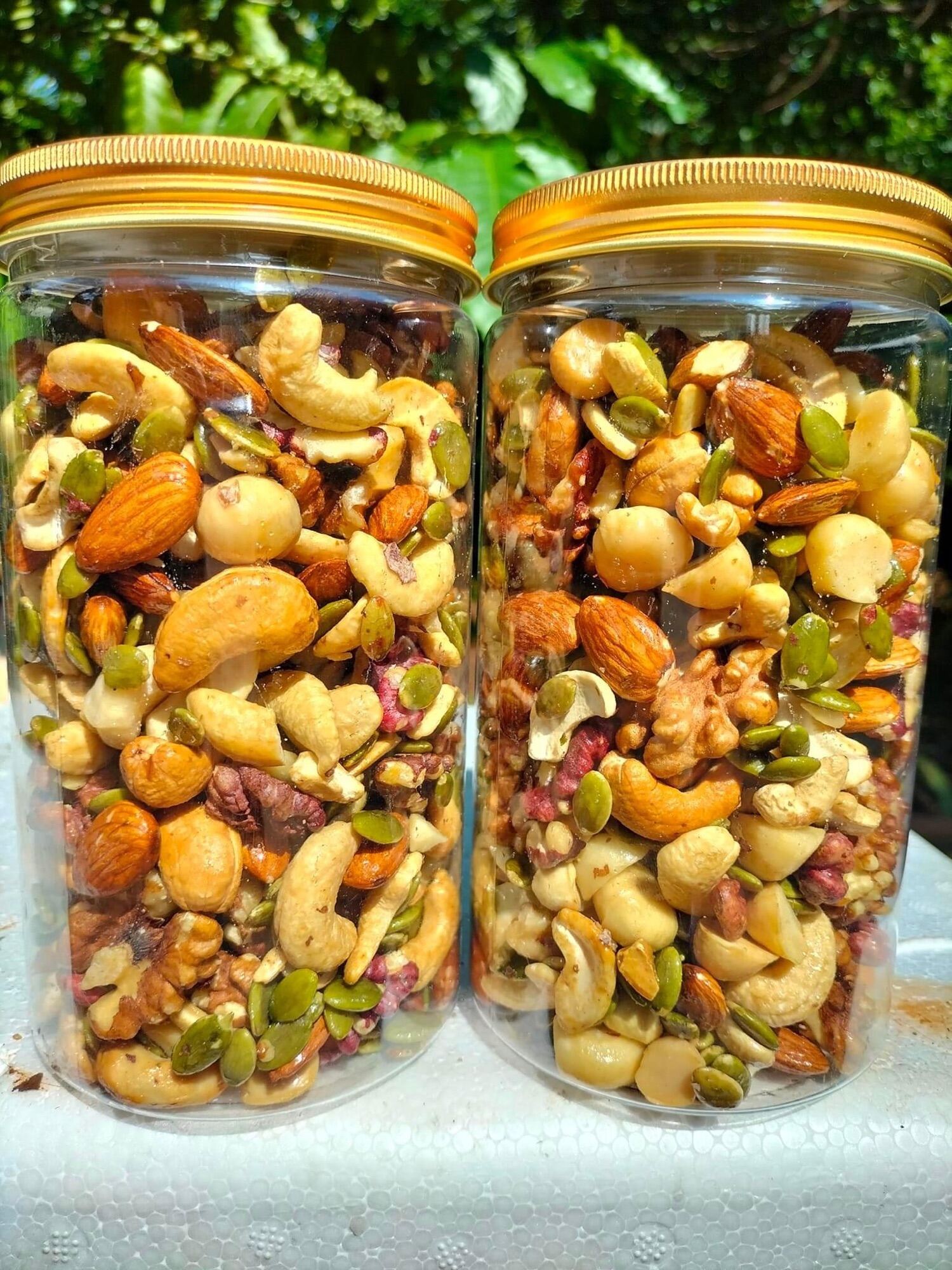 Granolas sound like great breakfast choices, but they’re usually no better than a candy bar. Although unprocessed oats are high in fiber, granola bars only provide an average of 3 grams of fiber, and they contain a lot of sugar. In fact, some of the most popular brands contain a combination of sugar, corn syrup, and honey. Large amounts of these sugars can raise blood sugar, insulin levels, and increase inflammation. Granola sometimes contains chocolate or dried fruit. Granola’s protein content also tends to be low, making them a less healthy breakfast choice.
Granolas sound like great breakfast choices, but they’re usually no better than a candy bar. Although unprocessed oats are high in fiber, granola bars only provide an average of 3 grams of fiber, and they contain a lot of sugar. In fact, some of the most popular brands contain a combination of sugar, corn syrup, and honey. Large amounts of these sugars can raise blood sugar, insulin levels, and increase inflammation. Granola sometimes contains chocolate or dried fruit. Granola’s protein content also tends to be low, making them a less healthy breakfast choice.
10. Processed, gluten-free breakfast foods
 Gluten-free diets have become very popular in recent years because of concerns about the negative health effects of gluten. While there’s no harm in avoiding gluten, eating a lot of gluten-free processed foods can now cause problems. For example, a combination of flours made from rice, potato, and tapioca replaces wheat flour in gluten-free bread and baked goods. These powders have a high glycemic index, so they raise blood sugar quickly. This increase leads to high insulin levels which can cause rebound hunger and weight gain. Additionally, gluten-free pancakes, muffins, and other baked goods don’t outperform traditional wheat-based versions due to their low protein and fiber content.
Gluten-free diets have become very popular in recent years because of concerns about the negative health effects of gluten. While there’s no harm in avoiding gluten, eating a lot of gluten-free processed foods can now cause problems. For example, a combination of flours made from rice, potato, and tapioca replaces wheat flour in gluten-free bread and baked goods. These powders have a high glycemic index, so they raise blood sugar quickly. This increase leads to high insulin levels which can cause rebound hunger and weight gain. Additionally, gluten-free pancakes, muffins, and other baked goods don’t outperform traditional wheat-based versions due to their low protein and fiber content.
11. How to have a good breakfast?
Breakfast provides energy to get ready for the day, helps keep blood sugar levels steady, and controls appetite and weight. But making unscientific choices in the content of breakfast can leave us hungry and struggling to get through the rest of the day. It can also increase your risk of developing future health problems. So enjoy a breakfast that’s packed with protein, healthy fats, and fiber from whole, unprocessed foods.Additional note, if your stomach is empty, you should consider not eating foods such as:Yeast foods like bread can stimulate flatulence Eating foods with high sugar will increase insulin levels High Eating yogurt and fermented substances will reduce beneficial digestive acids in the stomach Pears, tomatoes, cucumbers, bananas should not be eaten on an empty stomach Do not eat spicy foods and drink soft drinks with high cab treatment at Vinmec International General Hospital with a system of modern facilities, medical equipment and a team of experts, doctors with many years of experience in medical examination and treatment, complete patients You can rest assured that you will be examined and treated at the Hospital.
Source: https://www.vinmec.com









